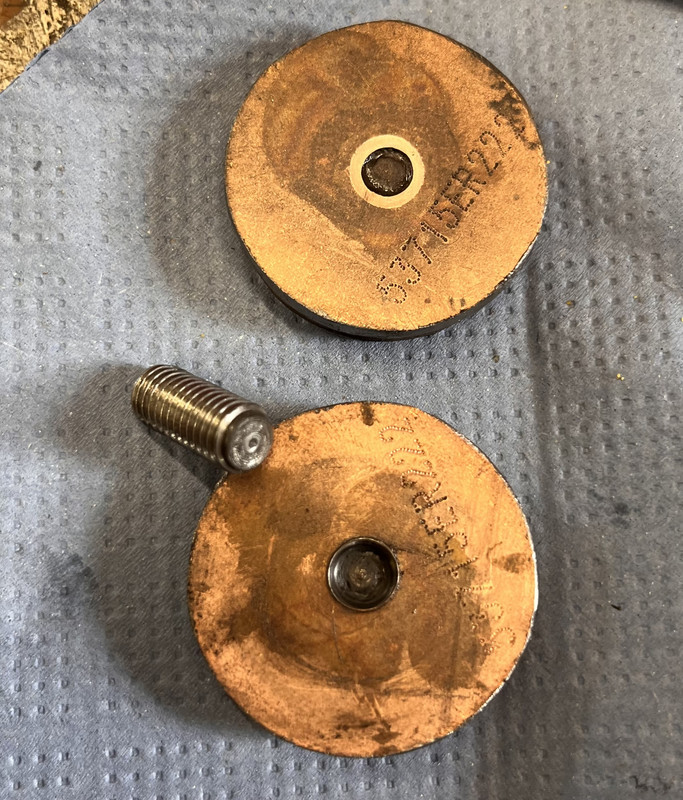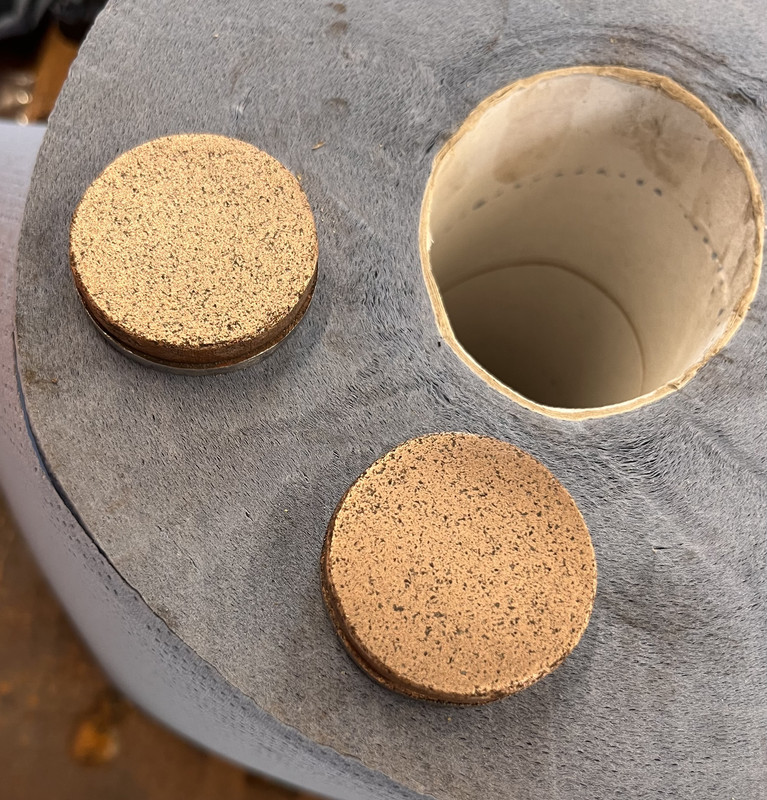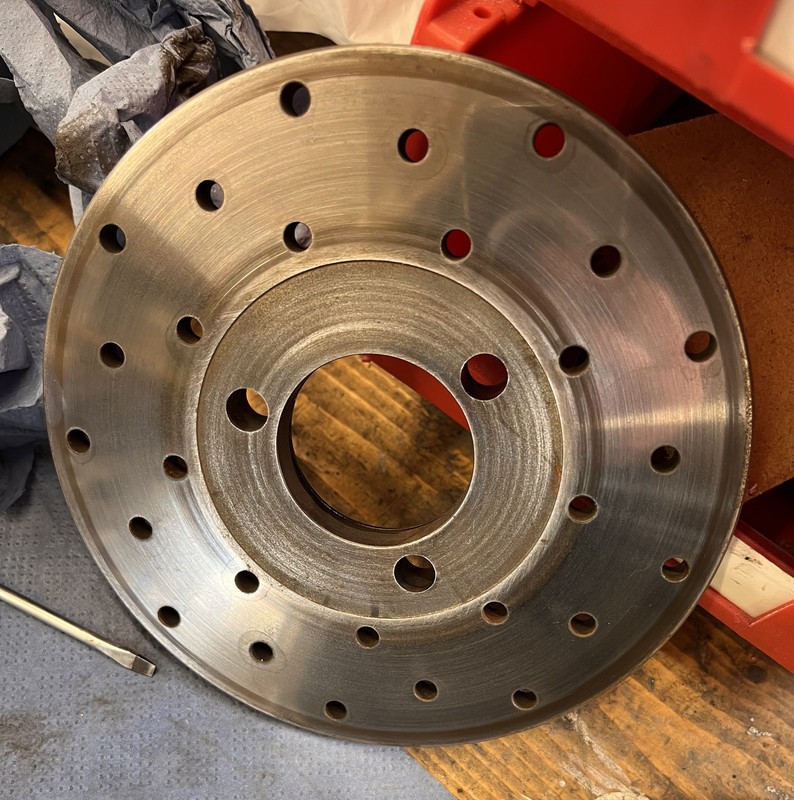LCGB Forums
The ability to post messages is restricted to LCGB members. Any questions contact us at lcgbadmin@googlemail.com
Copper sintered disc pads
36 posts
• Page 1 of 2 • 1, 2
Copper sintered disc pads
Just fitted some old ex display ones off eBay.
Fitted easily.
Really impressed with the stopping power especially when I got brake tested today, was willing to lock up.
Only problem is they squeak.
Is this normal I can see it getting tiresome over my 12 day euro jaunt.
Fitted easily.
Really impressed with the stopping power especially when I got brake tested today, was willing to lock up.
Only problem is they squeak.
Is this normal I can see it getting tiresome over my 12 day euro jaunt.
- Scooterlam
- Posts: 1377
- Joined: Mon Jun 09, 2014 10:59 pm
Re: Copper sintered disc pads
Did you put copper grease on the back of the two pads? That is supposed to stop the squealing.
-
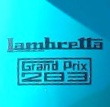
Knowledge - Posts: 1993
- Joined: Sat May 31, 2014 11:42 am
- Location: Ipswich
Re: Copper sintered disc pads
Had thought of that but the fixed pad only touches the end of a 6mm stud.
I'll try on the piston side,
It's a hydrolic convention btw.
I'll try on the piston side,
It's a hydrolic convention btw.
- Scooterlam
- Posts: 1377
- Joined: Mon Jun 09, 2014 10:59 pm
Re: Copper sintered disc pads
Yea, the one's fitted to mine squeaked as well. Got to the point that I had to change them as it became annoying
- Toot
- Posts: 749
- Joined: Tue May 13, 2014 9:59 pm
- Location: West Cumbria, up North
Re: Copper sintered disc pads
Try putting copper slip on the sides of the disc pads,as well as the back.
-
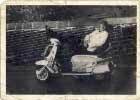
HxPaul - Posts: 1583
- Joined: Fri May 30, 2014 9:18 am
- Location: Halifax
Re: Copper sintered disc pads
I always sensed that the squeak was as a result of the sintered pad touching the disc when you braked?
Not sure how you would therefore prevent this from occurring?
I suppose the primary question here is why and how are copper sintered disc brake pads supposedly more superior to standard disc pads? (Especially considered that the vast majority of Lambretta disc brakes are never going to get anywhere near to the working temperature of a racing two wheeled machine going around a race track?)
Not sure how you would therefore prevent this from occurring?
I suppose the primary question here is why and how are copper sintered disc brake pads supposedly more superior to standard disc pads? (Especially considered that the vast majority of Lambretta disc brakes are never going to get anywhere near to the working temperature of a racing two wheeled machine going around a race track?)
- Toot
- Posts: 749
- Joined: Tue May 13, 2014 9:59 pm
- Location: West Cumbria, up North
Re: Copper sintered disc pads
mine squeeled when applying brake while pushing it. had to get rid!
- a.lo
- Posts: 103
- Joined: Sat May 31, 2014 3:56 pm
Re: Copper sintered disc pads
Toot wrote:
I suppose the primary question here is why and how are copper sintered disc brake pads supposedly more superior to standard disc pads? (Especially considered that the vast majority of Lambretta disc brakes are never going to get anywhere near to the working temperature of a racing two wheeled machine going around a race track?)
A very good question with 100 answers! The coefficient friction is what changes. So what is the COF of 'original' or 'standard' pads? Depends massively on what standard pads you happen to get hold of.
Personally, I found a huge difference between ebc greenstuff organic pads and ebc hh sintered pads, but that was on sports bikes. Don't get me wrong though, that was from cold when just pootling around as well as hard braking lap after lap.
You'll struggle to get COF values from manufacturers as they won't commit themselves when so many variables are involved: drilled, plain or slotted discs; dry or wet; worn or new discs; hot or cold?
Even within those sub categories, the COF can actually change with braking pressure as the pad face distorts at a microscopic level.
Bloody minefield it is.
- dickie
- Posts: 1901
- Joined: Thu Oct 02, 2014 12:32 pm
- Location: Tyne and Wear
Re: Copper sintered disc pads
On this scooter, I have a second hand Vietnamese copy front disc hub. The actuating lever is an original Italian one rebuilt with new bearing and ball bearings. I have replaced the disc itself that came with the hub to another Vietnamese vented one (at the time I rebuilt the disc hub during the pandemic, I couldn’t get the better quality Italian disc)
viewtopic.php?f=19&t=15144&p=146291#p146291
Anyway, the pads I have are sintered, the type that essentially look like they are solid copper almost. I have taken them out a couple of times to clean them up, check that they are free to move and put some copper grease on the back.
The braking is good and that’s without doing a reverse pull. But the squeal at slow speeds is pretty annoying. At this point, the benefit of good braking outweighs the squeal but is there anything I can do to stop it?
viewtopic.php?f=19&t=15144&p=146291#p146291
Anyway, the pads I have are sintered, the type that essentially look like they are solid copper almost. I have taken them out a couple of times to clean them up, check that they are free to move and put some copper grease on the back.
The braking is good and that’s without doing a reverse pull. But the squeal at slow speeds is pretty annoying. At this point, the benefit of good braking outweighs the squeal but is there anything I can do to stop it?
-

Storkfoot - Posts: 2455
- Joined: Fri May 30, 2014 8:59 pm
- Location: Merseyside
Re: Copper sintered disc pads
After you removed and cleaned the pads, did the squealing disappear for the first few applications? If it did, then it's probably contamination getting onto them. It can take the tiniest amount for this to happen.
Also, is your disc drilled or plain? Drilled ones can help to keep the pad surfaces slightly roughed up and keep squealing down.
Hard braking can help too, whereas light frequent braking tends to polish up the surfaces. Maybe the slide pins are a little tight, so the disc is rubbing on the pads all the time and causing them to glaze? That last point is pure conjecture, I've never come across that being a problem, but a thought just popped into my head.
Also, is your disc drilled or plain? Drilled ones can help to keep the pad surfaces slightly roughed up and keep squealing down.
Hard braking can help too, whereas light frequent braking tends to polish up the surfaces. Maybe the slide pins are a little tight, so the disc is rubbing on the pads all the time and causing them to glaze? That last point is pure conjecture, I've never come across that being a problem, but a thought just popped into my head.
- dickie
- Posts: 1901
- Joined: Thu Oct 02, 2014 12:32 pm
- Location: Tyne and Wear
Re: Copper sintered disc pads
Scooterlam wrote:Had thought of that but the fixed pad only touches the end of a 6mm stud.
I'll try on the piston side,
It's a hydrolic convention btw.
I encountered this but used a 3mm shim made from some brass sheet I bought from ebay - made it slightly smaller than the diameter of the pad.
- bookertmgs1
- Posts: 272
- Joined: Thu Nov 12, 2015 10:28 pm
Re: Copper sintered disc pads
Mine squealed but then stopped after I reverse pulled it.
-
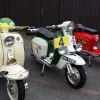
Rich Oswald - Posts: 9935
- Joined: Fri May 30, 2014 3:30 pm
- Location: Wiseman From The East (East Of The Pennines That Is)
Re: Copper sintered disc pads
dickie wrote:After you removed and cleaned the pads, did the squealing disappear for the first few applications? If it did, then it's probably contamination getting onto them. It can take the tiniest amount for this to happen.
Also, is your disc drilled or plain? Drilled ones can help to keep the pad surfaces slightly roughed up and keep squealing down.
Hard braking can help too, whereas light frequent braking tends to polish up the surfaces. Maybe the slide pins are a little tight, so the disc is rubbing on the pads all the time and causing them to glaze? That last point is pure conjecture, I've never come across that being a problem, but a thought just popped into my head.
Cleaning did, as you say, help for a few miles but then it went back to what it was like before. It is a vented disc. I do still have the circlip fitted to the disc though. That said, it appears to move okay on the pins.
-

Storkfoot - Posts: 2455
- Joined: Fri May 30, 2014 8:59 pm
- Location: Merseyside
Re: Copper sintered disc pads
Rich Oswald wrote:Mine squealed but then stopped after I reverse pulled it.
Interesting. Presumably, that is because there is extra force immediately applied between the pads and disc
-

Storkfoot - Posts: 2455
- Joined: Fri May 30, 2014 8:59 pm
- Location: Merseyside
Re: Copper sintered disc pads
Storkfoot wrote:Rich Oswald wrote:Mine squealed but then stopped after I reverse pulled it.
Interesting. Presumably, that is because there is extra force immediately applied between the pads and disc
Well reverse pull did make a massive difference to the braking. When I used to MOT it, the tester said he'd never tested one so good.
-

Rich Oswald - Posts: 9935
- Joined: Fri May 30, 2014 3:30 pm
- Location: Wiseman From The East (East Of The Pennines That Is)
Re: Copper sintered disc pads
Have you given them a good spray with brake cleaner? Squeaking can be caused by contamination on the pads or disk also is the anti rattle clip working properly? If the disk isn't able to float under centrifugal force it will rub (squeak) the static pad
- missing lynx
- Posts: 888
- Joined: Wed Nov 26, 2014 5:14 pm
Re: Copper sintered disc pads
missing lynx wrote:Have you given them a good spray with brake cleaner? Squeaking can be caused by contamination on the pads or disk also is the anti rattle clip working properly? If the disk isn't able to float under centrifugal force it will rub(squeak) the static pad
I have used copious amounts of brake cleaner on pads and disc. I may as well try taking the circlip out of the disc next time I am in the hub. I’ll also check the adjustable grub screw that positions the static pad is okay. I didn’t take much notice of it before but it did appear to have a sharper point than I remember them having.
Cheers
-

Storkfoot - Posts: 2455
- Joined: Fri May 30, 2014 8:59 pm
- Location: Merseyside
-

Storkfoot - Posts: 2455
- Joined: Fri May 30, 2014 8:59 pm
- Location: Merseyside
Re: Copper sintered disc pads
I have a spare Italian disc if you’d like to try that Paul?
But it sounds like you may have cracked it.
But it sounds like you may have cracked it.
- Cgt75b
- Posts: 492
- Joined: Mon Jul 28, 2014 9:42 pm
- Location: Cheshire
Re: Copper sintered disc pads
I once had a disc that didn't float on the pins properly. The fix was to bend the spring into a tighter radius. Basically the spring was applying too much force on the pins. Maybe you could do the same rather than leave it out?
- dickie
- Posts: 1901
- Joined: Thu Oct 02, 2014 12:32 pm
- Location: Tyne and Wear
36 posts
• Page 1 of 2 • 1, 2
Who is online
Users browsing this forum: Baidu [Spider] and 42 guests
